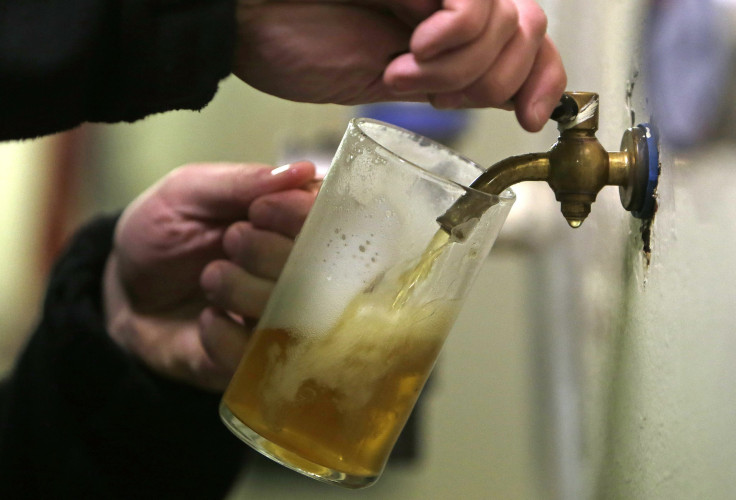Beer From Urine: Belgian Scientists Create Solar Device To Remove Water From Urine

A team of Belgian scientists have created a device that uses solar energy to turn urine into drinkable water, which can then be used to brew beer — a process they call “sewer to brewer,” which is also an attempt to revolutionize waste management in rural areas and developing countries.
The team from the University of Ghent recently tried out the device at a 10-day music festival in central Ghent, with the slogan #peeforscience. After having collected 1,000 liters (over 260 gallons) of water from the urine of attendees, the researchers now plan to use it to make beer.
Ready for action! #GF16 #PeeForScience pic.twitter.com/09AdaoA4fu
— Marjolein Vanoppen (@MarjoVanoppen) July 15, 2016
“We’re able to recover fertilizer and drinking water from urine using just a simple process and solar energy,” said researcher Sebastiaan Derese, according to Reuters. “We call it from sewer to brewer.”
There are a number of other options for treating waste water but the method used in the experiment utilizes a special membrane that is said to be energy-efficient and usable in areas without electricity. The process involves collecting urine in a big tank and heating it in a solar-powered boiler. It is then passed through the membrane which separates the nutrients, recovering the water.
According to Derese, the aim behind the project is to install bigger versions of the machine in venues like sports arenas and airports. The team also hopes to take the concept to rural communities in the developing world where there is a shortage of safe drinking water.
© Copyright IBTimes 2025. All rights reserved.






















